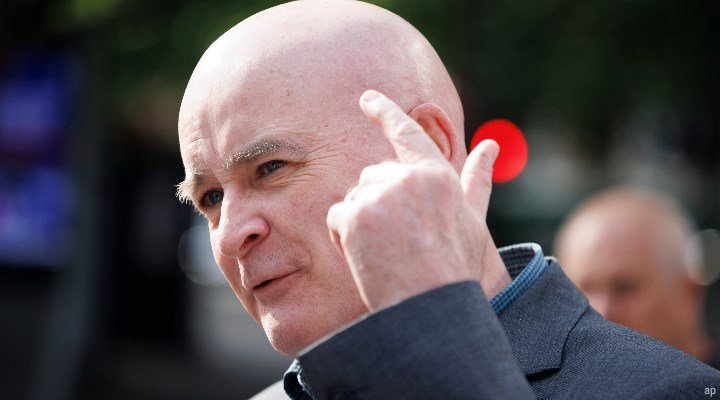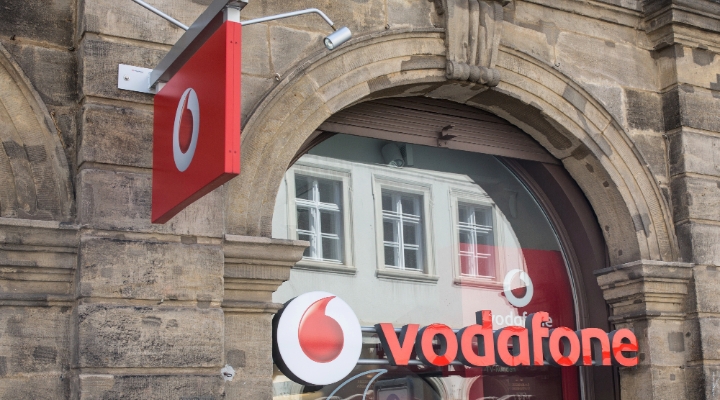You Can’t Sell Pizza to the Italians
Well, not a pineapple-topped Hawaiian at least. The US chain Domino’s this week announced it was shutting down its Italian operation, after admitting there was not sufficient demand for its American-style pizza from locals. Domino’s closed the last of its 29 franchised branches after expanding into this market seven years ago, via a franchising agreement with ePizza. While US-style toppings may have played their part, the venture was also hit by the rise of third-party delivery services, such as Deliveroo and Just Eat, which allowed Italians to order takeaways from independent family-run pizzerias during the pandemic. This hampered Domino’s growth plans to open 880 takeaway stores.
Winter is Coming
It remains to be seen if this will be a motif of the new Game of Thrones spin-off due to hit our screens next week. But it’s an apt reflection of headlines this week — with the spotlight remaining firmly on the privatised utilities. The UK is experiencing its hottest summer on record, with the government expect to declare an official drought today. This has led to widespread hosepipe bans and water firms admit they are losing 2.4 billion litres a day through leakage. But as the nation swelters, there are concerns many households will be feeling the cold this winter, with predictions that average gas and electricity bills will hit £4,266 by January.
These spiralling bills comes as energy giants post record profits. Pressure remains on these firms to act to lower bills, or potentially face a one-off windfall tax. However in the political vacuum of a summer leadership campaign, there seems little agreement among Conservatives, let along cross-party consensus, on the best way of dealing with this escalating crisis. It’s not just those on the lowest incomes worried about rising bills, research found similar concern among City workers.
Cash is King Again
People are increasingly making cash transactions as inflation rises and the cost of living starts to bite. Post offices handled £801 million in cash withdrawals in July – a 20% increase on the year before, and the highest figure since it began collating this data five years ago. In total £3.32 billion in cash was deposited and withdrawn at Post Office counters, £100 million higher than in June. This increase has been attributed to the fact that people are increasingly relying on cash to help them budget, withdrawing a fixed amount each month. But it isn’t just those that are counting the pennies that are holding on to cash. News this week showed that Berkshire Hathaway, run by the world’s most famous investor, Warren Buffett, is still sitting on massive cash reserves, despite inflation picking up. Morningstar estimates that at the most recent quarter the company had around $70.2 billion (£57.7 billion) in dry powder that could be put to work.
Will America Ride to the Rescue?
Many will be familiar with the old adage that when American sneezes, the world catches a cold. This week we were left wondering if the reverse is also true — and a more positive economic outlook might be just as contagious. Just as the UK’s economy starts to contract, and forecasts suggest double-digit inflation this autumn, and a prolonged five-quarter recession, data from the US suggest inflation could have peaked, with falling petrol prices bringing CPI down to 8.5%, from a four-decade high of 9.1% the previous month. There was more positive economic news from the other side of the pond, with unexpectedly strong job growth last month, starting to allay fears of a full-blown recession in the world’s largest economy. The Federal Reserve is expected to continue raising rates aggressively to combat inflation.
Aburdened
The company formerly known as Standard Life Aberdeen received a pasting when it announced its new vowel-less name. But unfortunately it isn’t having the last laugh (yet) as it reported a £320 million loss for the first half of the year. The group blamed adverse market conditions, which had contributed to a rise in underlying net outflows as well as a slight deterioration in the investment performance of its fund managers. Abrdn said that plans to reduce costs to 70% of revenues by the end of 2023 had been dropped as costs had actually increased over the last six months from 79% to 83% of revenue. However the company scotched rumours that it was planning to cut dividend payouts again.
… But M&G Returns to Growth
M&G, one of the oldest fund managers in the City, has seen an increase in new retail investors for the first time in four years. Despite the adverse conditions – cited by abrdn for its poor results – M&G had more retail investors buying its funds than selling them over the past six months. This has produced net inflows of £800 million, a significant turnaround on the £3.4 billion net outflows reported in the previous six months period. Taking into account institutional investments, the group still had overall net outflows (of £1.9 billion), but M&G said this was entirely due to assets maturing from Prudential’s mammoth with-profits fund.
Senate Bill Could Be ESG Game Changer
The UK and Europe have led the way when it comes to ESG investing. But legislation passed in the Senate this week may create more demand for ESG-focused investments in the US. The Senate passed a sweeping $369 billion bill to help fight climate change, which would be the largest investment in US history. This will give households tax credits to buy electric cars, while billions will be spent to speed up the production of clean technology, including solar panels and wind turbines. This is expected to super-charge investments from US asset managers into many of these green industries. Industry analysts says this bill confirms that ESG will be the “mega-trend” of the decade.
Some Surprising Solutions to Labour Shortages
While holidaymakers wait in long queues, due to staff shortages at airlines and airports, Aussie airline Qantas has asked its senior executives to work for three months as baggage handlers. While it won’t be mandatory for the suits to be shifting suitcases, Qantas is looking for at least 100 volunteers to work in its Sydney and Melbourne airports. It has yet to announce whether it has found the required numbers to do the heavy work. Will this lead to similar initiatives across other labour-strapped industries? The PR alone would no doubt be welcome, particularly if services standards can be improved. Though I’m guessing we won’t be seeing the likes of Ryanair CEO Michael O’Leary, or Heathrow boss John Holland-Kaye be manning a check-in desk soon.
Pharmaceuticals on an Epic Spending Spree
US pharma giant Pfizer is using some of the profits it has made from the Covid pandemic to start snapping up smaller drugs companies. This week it bought Global Blood Therapeutics for $5.4 billion — a company that manufactures drugs to combat blood disorders. This follows a $11.6 billion purchase of Biohaven Pharmaceuticals in May, which makes migraine pills and treatments, and a $6.7 billion deal to buy Arena Pharmaceutical in March — which is developing treatments in dermatology and cardiology. Analysts say that Pfizer has enjoyed an unprecedented rise in sales amid global demand for its Covid vaccine. But this is now starting to slow so the company is now looking at acquisition to boost sales and revenues.
Mr & Mrs Smith Check In
With delays hitting airports and ferry terminals, you might think a UK-based holiday would be preferable this August. You might want to think again though, with the price of a hotel room in the UK reaching a record high. Latest data from BNP Paribas Real Estate shows that the average room rate reached £122.86 in the second quarter of this year, a 70% increase on the quarter before, while the “revenue per available room” has increased to an all-time high of £98. Despite the cost, perhaps a staycation is looking like a better option after all. We have the sun, now we just need the air-conditioning, room service and mini-fridge.








.jpg)




















